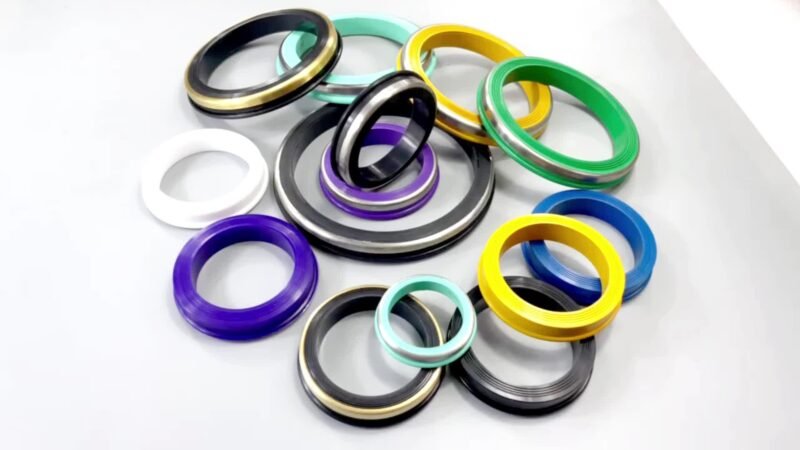Silicone parts have become popular in the automotive industry because of their unique properties. They offer multiple benefits for engine performance, durability, and safety. From hoses and seals to gaskets and electrical components, silicone is used in many automotive parts. These components help improve engine efficiency and ensure safety. In this article, we will explain how automotive silicone parts enhance engine efficiency and safety. Let’s explore why they are a preferred choice for many manufacturers.
1. Resisting High Temperatures for Better Engine Performance
One key advantage of silicone parts is their ability to handle extreme temperatures. Engines generate a lot of heat. Traditional rubber or plastic parts often break down when exposed to high temperatures. Silicone parts, however, can withstand temperatures from -60°C to 200°C (-76°F to 392°F). This makes them ideal for many automotive applications.
Silicone’s heat resistance helps hoses, gaskets, and seals maintain their shape and strength even at high temperatures. This reduces the risk of cracks and leaks. As a result, engines with silicone parts perform better and last longer. They also need less maintenance, which saves time and money.
2. Resisting Chemical Damage for Longer-Lasting Components
Engines are exposed to various chemicals like oils, coolants, and fuels. These substances can damage traditional rubber parts, leading to leaks and other problems. Silicone parts, on the other hand, resist chemical damage very well.
This chemical resistance makes silicone parts more durable. They are less likely to break down or fail, which leads to fewer breakdowns and less maintenance. For example, silicone is often used in coolant hoses and fuel system seals. Using these high-quality parts ensures the engine stays safe and efficient.
3. Flexibility for Better Vibration Absorption
Engines produce a lot of vibrations. This can cause parts to wear out quickly. Silicone is more flexible and durable than traditional materials. It can absorb vibrations and reduce stress on other parts.
This flexibility is especially helpful in engine mounts. Silicone mounts absorb engine movement, which protects the engine from damage. It also makes for a smoother and quieter ride, enhancing vehicle comfort and safety.
4. Superior Sealing to Prevent Leaks
Silicone gaskets and seals provide a tight seal compared to traditional materials. Their flexibility allows them to fit perfectly against various surfaces. This prevents leaks and helps the engine maintain its performance.
In high-pressure applications, such as turbocharger systems, silicone gaskets are ideal. They ensure that gases or fluids do not escape. This keeps the engine running efficiently and prevents potential damage.
5. Electrical Insulation for Enhanced Safety
Silicone is also used in electrical parts because of its insulation properties. Electrical wiring, sensors, and connectors are exposed to extreme temperatures and chemicals. Silicone protects these systems from short circuits, corrosion, and other hazards.
This makes sure that important electrical systems, like sensors and control units, work properly. It improves the overall safety and performance of the vehicle’s electrical systems.
6. Resistance to Aging and Environmental Damage
Traditional rubber parts can become brittle over time. They crack when exposed to sunlight, ozone, or temperature changes. Silicone parts, however, resist aging and environmental damage.
This makes silicone components perfect for under-the-hood applications. They withstand heat, moisture, and chemicals better. Using silicone parts helps extend the life of critical engine components, reducing the need for replacements.
7. Lightweight Design for Better Fuel Efficiency
Silicone parts are often lighter than metal or rubber components. Reducing weight in vehicles is important for fuel efficiency. By using lightweight silicone parts, manufacturers can design engines that consume less fuel.
For example, silicone hoses in cooling and air intake systems reduce the overall weight of the engine. This weight reduction leads to improved fuel economy and lower emissions.
8. Versatility for Different Automotive Systems
Silicone is a versatile material. It can be molded into many shapes and sizes. This makes it suitable for various automotive systems, from engines and transmissions to exhausts and fuel systems.
Silicone can handle both high and low temperatures, resist chemicals, and stay flexible. Its versatility allows manufacturers to use it in multiple parts, simplifying the production process and ensuring consistent performance.
9. Support for Advanced Engine Technologies
Modern engines operate at higher pressures and temperatures. Silicone parts are well-suited for these advanced systems. They can handle extreme conditions better than traditional materials.
For example, turbocharged engines generate a lot of heat. Silicone turbocharger hoses are designed to handle these conditions without breaking down. This ensures reliable engine performance and safety.
Conclusion
Automotive Silicone Parts In Valencia offer many benefits for engine efficiency and safety. Their resistance to heat, chemicals, and environmental damage makes them ideal for many applications. They also provide flexibility, durability, and better sealing. Choosing high-quality silicone components from reputable suppliers can ensure that engines perform well and stay reliable for years to come. Thank visiting empireadda.com



